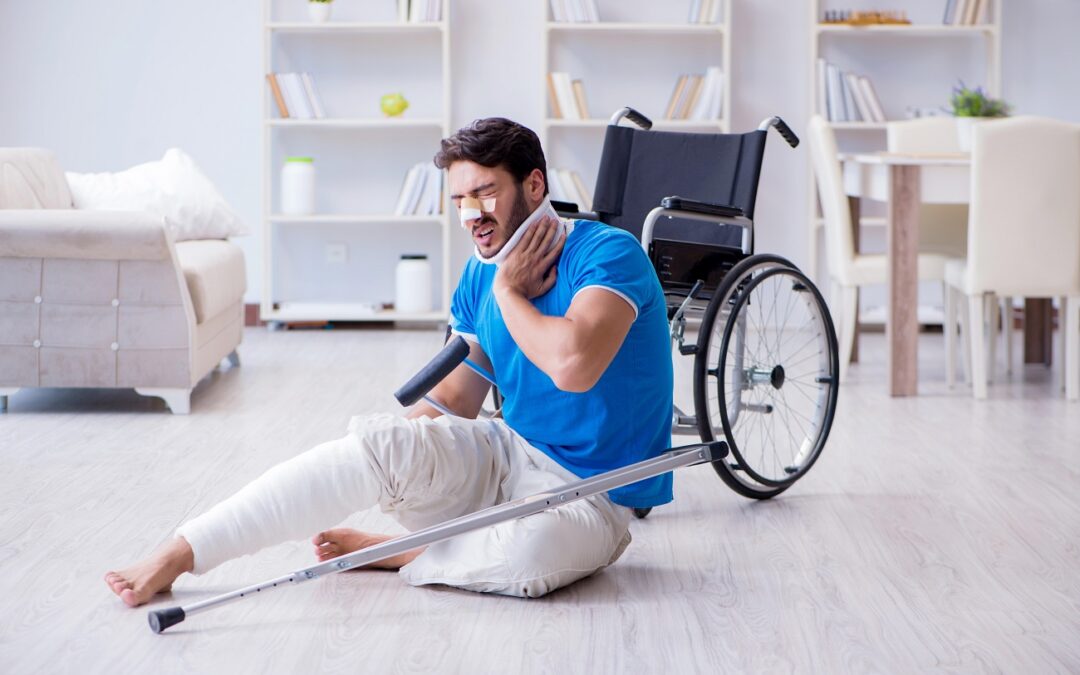Personal injury attorney can help protect your rights in your motorcycle accident case
A personal injury attorney in Boise ID can help make your motorcycle accident case robust. Accidents happen unexpectedly, and when they involve motor vehicles, the consequences can be severe. In the event of a collision, protective gear like helmets can significantly reduce the risk of head injuries. But what if you weren’t wearing a helmet at the time of the accident? Does this affect your chances of winning a personal injury case? In this article, we’ll delve into this question, exploring the legal implications and considerations, particularly in the context of Idaho law.
Understanding Helmet Laws in Idaho:
Before delving into the legal ramifications of not wearing a helmet during an accident, it’s crucial to understand the relevant laws in Idaho. As of the latest update, Idaho does not have a universal helmet law for all motorcyclists. However, there are specific regulations regarding helmet use for certain groups, such as:
- Riders under the age of 18: Idaho law mandates that all motorcycle riders under the age of 18 must wear a helmet while operating or riding as a passenger on a motorcycle.
- Riders with instructional permits: Individuals holding instructional permits, regardless of age, are also required to wear helmets while riding motorcycles.
Motorcyclists need to be aware of these laws and comply with them to avoid potential legal consequences in the event of an accident.
The Impact on Personal Injury Cases:
In personal injury cases arising from motorcycle accidents, the issue of helmet use—or lack thereof—can significantly impact the outcome of the case. While Idaho follows a modified comparative negligence rule, where compensation may be reduced based on the injured party’s degree of fault, not wearing a helmet can complicate matters.
Contributory negligence: If you sustain injuries in a motorcycle accident and were not wearing a helmet, the opposing party may argue that your failure to wear protective headgear contributed to the severity of your injuries. In Idaho, if the court determines that you were partially at fault for your injuries due to not wearing a helmet, it could reduce the amount of compensation you receive proportionally.
Evidence and Causation:
In personal injury cases, evidence plays a crucial role in establishing liability and determining the extent of damages. If you weren’t wearing a helmet at the time of the accident, the opposing party may attempt to use this as evidence to undermine your case. They may argue that your injuries would have been less severe or even preventable had you been wearing a helmet.
However, it’s essential to note that the absence of a helmet does not automatically absolve the other party of liability. Your attorney can help build a strong case by gathering evidence to establish causation and demonstrate that the other party’s negligence or recklessness was the primary cause of the accident and your injuries.
Seeking Legal Representation:
Navigating the complexities of personal injury law, especially in cases involving motorcycle accidents, can be challenging. If you’ve been injured in an accident while not wearing a helmet, it’s crucial to seek legal representation from an experienced personal injury lawyer in Idaho.
A skilled attorney can assess the specifics of your case, advise you on your legal rights and options, and advocate on your behalf to pursue fair compensation for your injuries and losses. They will work diligently to counter any arguments regarding contributory negligence and ensure that your rights are protected throughout the legal process.
Safety First: Importance of Helmet Use:
While the legal implications of not wearing a helmet during a motorcycle accident are significant, it’s essential to prioritize safety above all else. Wearing a helmet is one of the most effective ways to protect yourself from head injuries and potentially life-threatening consequences in the event of a crash.
Regardless of age or legal requirements, all motorcyclists should make it a habit to wear helmets whenever they ride. Investing in high-quality, properly fitted helmets can make a substantial difference in reducing the risk of head trauma and enhancing overall safety on the road.
Expanding on the importance of helmet safety and its correlation with personal injury cases, it’s worth highlighting some key points:
- Medical Evidence: In personal injury cases, medical evidence plays a crucial role in establishing the extent of injuries and their relationship to the accident. If you weren’t wearing a helmet and sustained head injuries, medical records documenting the nature and severity of your injuries become paramount. Your attorney can work with medical professionals to gather comprehensive evidence supporting your case and demonstrating the impact of the accident on your health and well-being.
- Expert Testimony: In complex personal injury cases, expert testimony can provide valuable insights into the cause and effect of injuries. If you weren’t wearing a helmet during the accident, expert witnesses, such as accident reconstruction specialists or medical experts, can testify to factors such as the speed of impact, the mechanics of the injury, and the potential role of helmet use in mitigating or preventing injuries. Their testimony can strengthen your case and counter-arguments of contributory negligence.
- Comparative Fault Analysis: Idaho follows a comparative fault system, which means that even if you were partially at fault for the accident due to not wearing a helmet, you may still be entitled to compensation. However, the amount of compensation you receive can be reduced based on your degree of fault. Your attorney will carefully analyze the circumstances of the accident and advocate for your rights, taking into account the applicable legal principles and precedents.
- Public Policy Considerations: In some personal injury cases, courts may consider public policy objectives when determining liability and damages. While helmet laws vary by state, the overarching goal is to promote safety and reduce the risk of injuries on the road. By wearing helmets, motorcyclists contribute to these broader public policy objectives, which can influence judicial decisions and outcomes in personal injury cases.
- Negligence and Duty of Care: Regardless of helmet use, all motorists have a duty of care to operate their vehicles safely and responsibly. If the other party involved in the accident breached this duty through negligent or reckless behavior, they may be held liable for any resulting injuries or damages, irrespective of helmet use. Your attorney will assess the facts of the case and pursue legal remedies based on principles of negligence and fault.
In summary, while not wearing a helmet can complicate personal injury cases arising from motorcycle accidents, it’s not necessarily a barrier to seeking compensation for your injuries. By working with a knowledgeable and experienced personal injury lawyer in Idaho, you can navigate the legal process effectively and pursue justice for your losses.
However, it’s essential to recognize the critical role of helmet safety in preventing or reducing the severity of head injuries in motorcycle accidents. By wearing helmets and adhering to other safety measures, motorcyclists can protect themselves and others on the road, promoting a culture of responsible riding and safeguarding lives.
Hire the best Personal injury attorney in Boise ID
Jacobson & Jacobson Law Firm, since 1982, is committed to serving the Boise and Nampa, Idaho areas for your top Criminal Defense, Personal Injury, Business Law, Estate Planning, Family Law, Immigration Law, and Litigation needs. Contact us today to get started. For a free 30-minute consultation, book here: https://calendly.com/jfj-1


